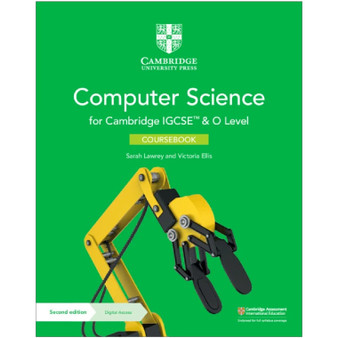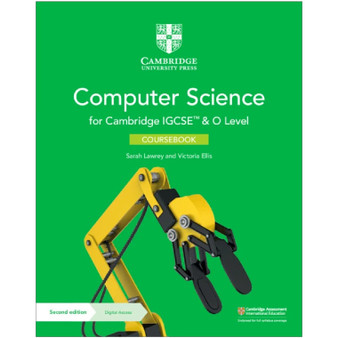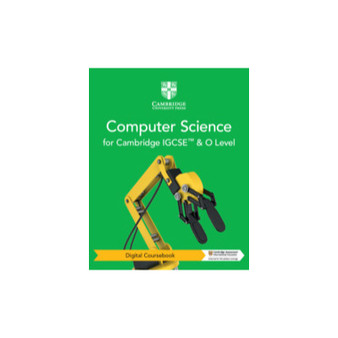Product Description
Cambridge IGCSE™ and O Level Computer Science Coursebook with Digital Access (2 Years)
Author/s: Sarah Lawrey, Victoria Ellis
Format: Print & online bundle
Build upon the fundamentals of computational thinking and programming with this coursebook, developed to support teachers and students through the Cambridge IGCSE™ and O Level Computer Science syllabuses (0478/0984/2210).
Bring computer science to life through real-life contexts and applications, including a new ‘Introduction to programming scenarios’ chapter and case studies from Microsoft Research®.
A three-tiered approach to programming tasks across the coursebook develops both skills and confidence for students of all levels of understanding. Teachers can access answers for free on the Cambridge GO platform.
Features:
-
Case studies from Microsoft Research® demonstrate how computer science can be applied in real-life scenarios
-
‘Computer science in context’ feature connects students to real-life scenarios and technology
-
‘Introduction to studying Computer Science’ chapter supports students with limited prior learning, helping them get up to speed with the key concepts
-
‘Skills focus’ sections develop students’ mathematical, computational thinking and programming knowledge, including step-by-step examples and questions
-
New ‘Self-evaluation checklists’ and peer assessment features encourage students to reflect on their own progress and learn from one another
-
New ‘Introduction to programming scenarios’ chapter helps prepare students for this new area of the syllabus
-
A wealth of new exam-style questions in every chapter provides students with exam preparation activities throughout the course
-
Access all your Cambridge GO resources anytime, anywhere and create your own collection in ‘My Resources’.
Contents:
How to use this series
How to use this book
Introduction to studying Computer Science at IGCSE™ & O Level: Under the hood of a computer
1.Data representation
2. Data Transmission
3. Hardware
4. Software
5. The internet and cyber security
6. Automated and emerging technology
7. Algorithm and problem solving
8.Programming
9. Databases
10. Boolean logic
11. Introduction to programming scenarios.






